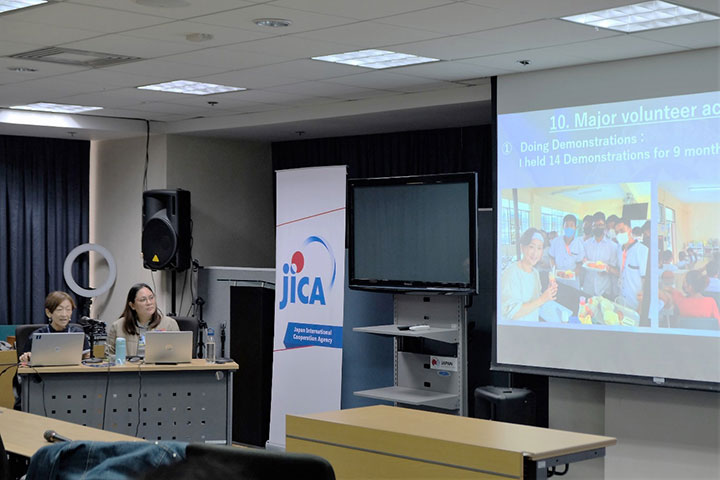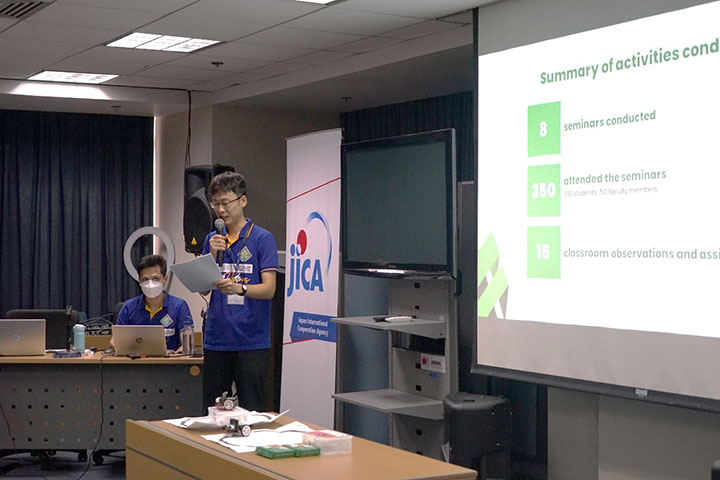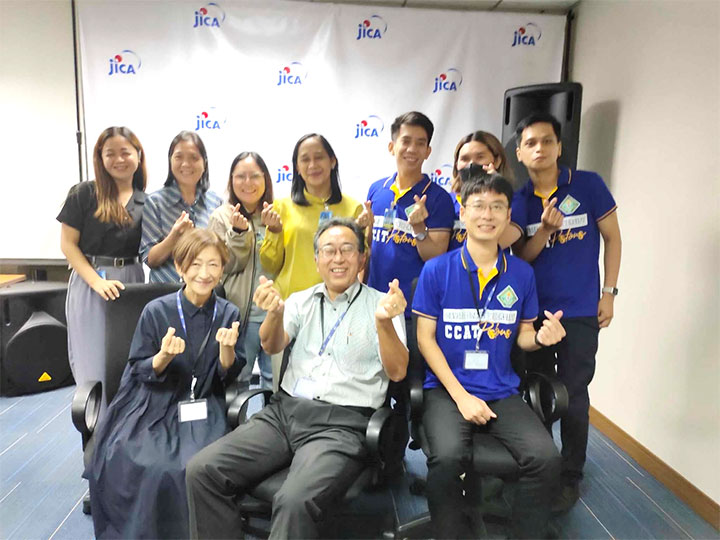How JICA volunteers are elevating ICT and tech-voc teaching in PH
2023.07.20
It has been a year since the Japan International Cooperation Agency (JICA) resumed the dispatch of its volunteers to the Philippines after about a two-year interval due to COVID-19 pandemic. With their Japanese expertise in information and communications technology (ICT) and cookery, these Japanese volunteers are steadily transforming how ICT and technical vocational education subjects are being taught.
This very process of empowering local communities through the exchange of knowledge is a kind of the essence of the Japan Overseas Cooperation Volunteers (JOCV) program of JICA.
SEKIGUCHI Takuya introduced changes to computer education in Cavite State University (CvSU) -Rosario Campus by assisting in syllabus development. He also introduced new technologies used in teaching programming in the classroom, such as ‘micro:bit’ and ‘micro:maqueen’. Through these, students learn about human-machine interaction and develop their computational thinking skills.
According to CvSU Department of Computer Studies Chairperson Aries Gilera, through the expertise and guidance of SEKIGUCHI, the university hopes to raise their accreditation level in ICT education, consequently boosting the quality of programs offered to students.
MIYAGAWA, on the other hand, introduced Japanese cuisine to culinary students and teachers of Rizal Experimental Station and Pilot School for Cottage Industries (RESPSCI). She also introduced basic Japanese language to students and teachers.
RESPSCI Senior High School Cookery Teacher Rea Digma stated that, through MIYAGAWA’s training, 10 students and two parents were already able to find employment utilizing Japanese culinary techniques. A two-day cooking camp conducted also by Miyagawa to cookery students and their parents and guardians have inspired three parents to start small businesses related to Japanese cuisine as well.
MIYAGAWA and teachers from RESPSCI are also currently developing a cooking booklet that features dishes fusing Japanese and Filipino cuisine.
JICA volunteers in the Philippines are normally dispatched for two years. They live with the communities and work on projects with their Filipino counterparts, after which they return to Japan.
“JICA feels that introducing Japanese culture and innovations with our partners in the Philippines does not sound as big as building infrastructure, but the Japanese volunteers’ work can make meaningful impact. If we can help improve the curriculums of certain areas in the Philippines, Filipino graduates are likely to develop fresh perspectives and meet international standards,” said JICA Chief Representative SAKAMOTO Takema. “Our mottos are ‘Kasama niyo kami (We are with you)’, ‘Bayanihan (Community Spirit)’ and ‘Mutual Understanding and Mutual Respect’,” SAKAMOTO added.
JICA volunteers are well-known for their innovative projects at the grassroots level. In 2016, they were conferred the prestigious Ramon Magsaysay Award, the Asian equivalent of the Nobel prize. In the Philippines, JICA volunteers have launched projects that benefit society until today such as the first fabrication laboratory for SMEs, organic farming, and animal breeding techniques to cite a few.

JOCV Miyagawa with counterpart cookery teacher, Rea Digma, shares their accomplishments for the past 12 months.

JOCV Sekiguchi conducted training activities related to programming for teachers and students of CvSU- Rosario Campus.

JICA Chief Representative SAKAMOTO Takema (center) with JOCVs and local counterparts.
scroll